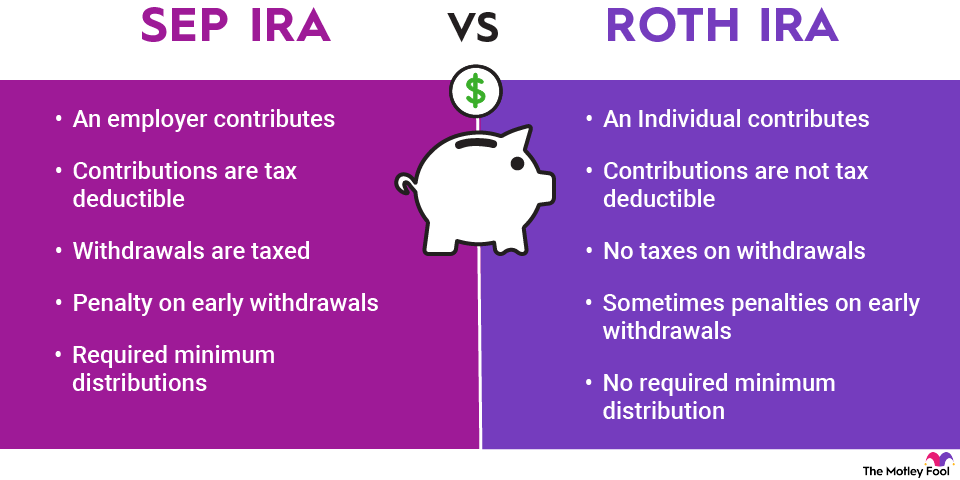An employer cannot adopt eligibility rules that are more restrictive than the criteria above, even if the rules are applied equally to every person in the organization.
SEP IRA withdrawal and distribution rules
Most SEP IRAs are tax-deferred account, meaning that -- as with a traditional IRA -- contributions are made with pre-tax dollars and withdrawals are taxed as ordinary income. If you withdraw money from your SEP IRA before you reach age 59 1/2, you are likely obligated to pay a 10% penalty on the amount withdrawn. However, it's now possible
If you leave your employer for any reason, you can roll your SEP IRA into another tax-advantaged retirement savings account such as a traditional IRA, a 401(k), or a 403(b). While it's also possible to roll the money into a Roth IRA, moving the funds from an account holding pre-tax dollars to one that accepts only post-tax contributions requires you to pay income tax on the transferred money in the year the rollover occurs.
You cannot borrow money from your SEP IRA and must accept annual required minimum distributions (RMDs) once you reach age 73 unless you have a Roth account.
If you are eligible to contribute directly to a SEP IRA, which you can do only if you are the employer or are self-employed, then you can claim the contributions as tax deductions. If you're not the employer or self-employed, then you cannot deduct the contributions to your SEP IRA from your taxable income.
Having a SEP IRA doesn't affect your eligibility to fund a Roth IRA or a traditional IRA. Even if you are fortunate enough to have an employer-funded SEP IRA, it's still important to independently save for your own retirement. Owning both a SEP IRA and another account you fund on your own is a surefire strategy to maximize your retirement savings.
Related Retirement Topics


